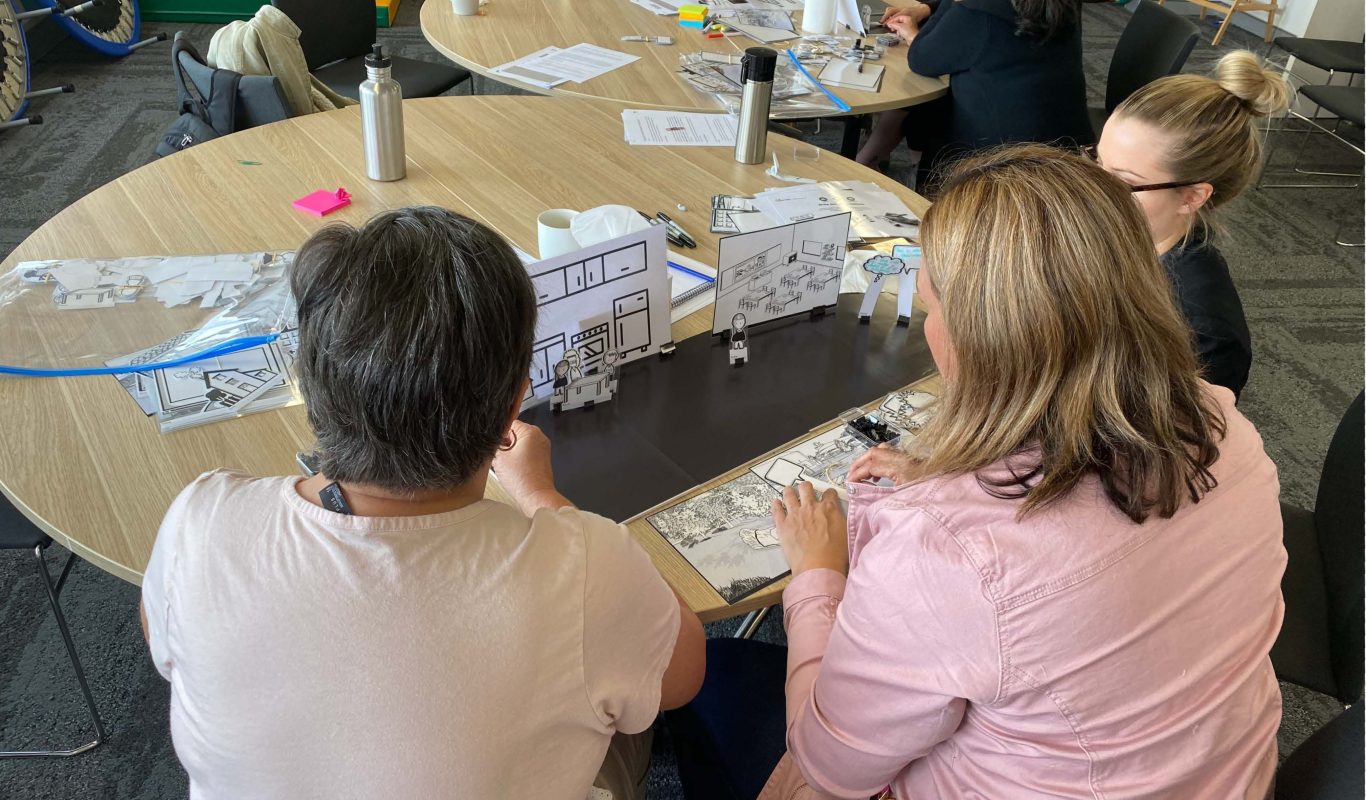Children’s voices guide the way for new model of care
Co-designing out of home care
With Parkerville Children and Youth Care, Western Australia
Right now, there are more Western Australian children living in out of home care than at any other time in history.
With a strong trend suggesting that children will be coming into care at even higher rates in the future – at younger ages, and for longer periods of time – an innovative response to design better experiences and outcomes for young people and their families is underway at one of the state’s largest providers of out-of-home care.
“In 2016, the Department of Communities reported that 45,471 Western Australian children were living in out-of-home care (OOHC). This figure has more than doubled in the last 10 years, and the majority of those children are Aboriginal.”
Set in the broader context of the Western Australian Government’s commitment to reform the out-of-home care system, there’s a strong focus squarely aimed at developing a system that is driven by the needs of children and young people and their diverse lives.
Parkerville Children and Youth Care (CYC), in partnership with Innovation Unit, have committed to developing an innovative model of out-of-home care that is built upon the experiences and voices of young people to inform the design.
As the State Government looks to begin new funding arrangements which favour models of care that better respond to the needs of children and young people, Parkerville CYC has embraced co-design methods to ensure that their new model is designed with and for those who use and are impacted by it. Work is underway to have the new model designed and codified in 2020, ready for testing at scale over the following year.
Kicking off with an introduction to the principles of co-design for social innovation, Parkerville CYC’s team learned about and gained experience with the tools and techniques needed to surface the insights of children and young people, people with lived experience in out-of-home care and key stakeholders in the care system.
Through discovery processes, insights revealed a system that doesn’t adequately take into account the cultural needs of Indigenous children – despite the fact that they make up more than 50% of the cohort of children in care, while only representing 6% of the overall population of children.
Insights also pointed to the need for a highly collaborative system, with participants in the discovery process reflecting that, in their experience, partnerships with families and children/young people have a significant positive impact on children and young people and their outcomes.
“We need to increase children’s say in what happens to them... without burdening them with undue responsibility.” Discovery participant
These insights have shaped the initial development of the new model, which was co-designed with Parkerville CYC staff, stakeholders, young people who have transitioned out of care and local survivors of the Stolen Generation in a week-long design sprint.
The model seeks to create a radically personalised approach to care which focuses on the individual needs of each child, the circumstances of their family and their broader community and cultural needs. The model will also focus on the dispositions, skills and experiences that carers need in order to develop a strong personal identity throughout their careers at Parkerville CYC and help children and young people heal from trauma and thrive.
Parkerville CYC’s team are now prototyping and refining the most crucial elements of the ambitious new model; upholding and honouring the voices of children and young people by inviting them into the process as designers and critics, alongside families and other stakeholders in the care ecosystem.
As the new model becomes the new normal, it’s anticipated that longer term impacts will be felt broadly throughout Western Australia: partnerships with families strengthen connections and lead to reduced durations in out-of-home care, collaboration with the Department, communities and schools that seek to reduce the stigma of being in care; and a greater focus on cultural and trauma-informed care that supports children and young people to thrive throughout their lives.
Project team
Keren Caple
Chief Executive
(Australia New Zealand)
Jethro Sercombe
Director Innovation Practice (Australia New Zealand)
Emma Scott
Senior Project Lead, Youth and Families
(Australia New Zealand)
Simon Harger-Forde
Senior Associate
(Australia New Zealand)
Nicole Hicks
Kaci Oliphant
Project Officer (Australia New Zealand)
